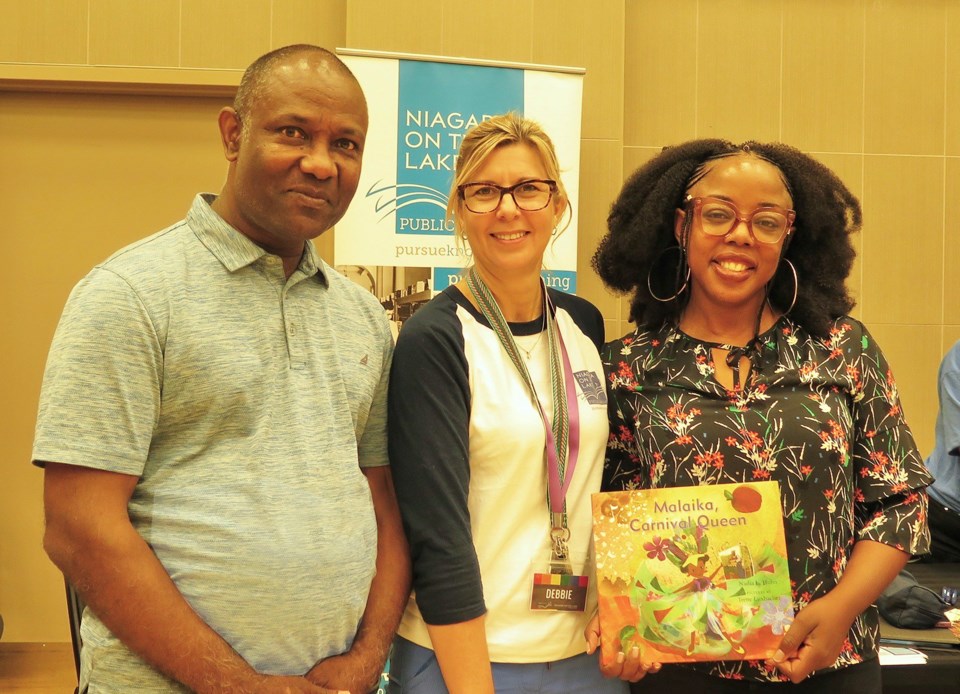This past Sunday young Kemar Campbell was laid to rest.
He was a farmworker from Jamaica who had only been in Niagara-on-the-Lake for eight weeks when he went to sleep one night and didn’t wake up. It was his first year on the seasonal farm work program, and a first-time father to a six-month-old daughter. The hopes of his family have been replaced by the agony of loss.
His family still has unanswered questions. It could take up to a year for them to receive the final toxicology report from the coroner to learn Kemar’s cause of death.
As Canadians we are
removed from the harsh
realities faced by every farmworker.
It is convenient that Kemar’s death is already out of the news cycle.
It is convenient that we did not have to witness his friends and neighbours as they dug his grave by hand this past week.
It is convenient that we did not have to witness his mother’s grieving and a young widow’s tears.
It is convenient that we do not have to witness the struggles of a little girl growing up never knowing her daddy’s love and support.
There is another story like Kemar’s, this one about the memories of a little girl who also grew up without her father.
The story opens with Malaika, a little girl in the Caribbean, who awakens from her sleep after a dream of a flying man carrying a basket of fruit — peaches, apples and cherries — and he hands her a mango.
In Caribbean tradition dreams can be foretellers, or reveal inner mysteries of the past. After relaying the dream to her mother and grandmother, they decide she is old enough to learn about a missing piece of her life.
They give her a picture of a young man, her father. The inscription on it was written lovingly to baby Malaika by her father before he left to work on a farm far away. He didn’t return. What follows is a compelling story about a young girl who finds community and a way to cope with grief after learning about the loss of her father.
Nadia Holt, a Toronto writer and educator, is the author of Malaika, Carnival Queen, her most recent in a series of books written for children in Grades 3 to 6.
The illustrations by Irene Luxbacher are bursting with colours and textures, and evoke the warmth and tenderness of the characters of the story.
Caribbean Creole is easily woven into the dialogue, welcoming the reader into the conversation.
Nadia Holt’s writing is inspired by her childhood memories and Jamaican heritage. Both of her grandfathers travelled from Jamaica to work on seasonal farm work programs in North America. She dedicated Malaika, Carnival Queen, to honour her grandfather who never returned. He died while working on the seasonal program, leaving the family with many questions that were never answered.
In a quest to better understand what her grandfathers experienced, Holt made a trip to Niagara in 2021 to meet with farmworkers who worked in similar orchards. It was an illuminating experience, one that helped her gain a new understanding of the hardship they experienced to provide for their families back home.
Families of farmworkers, regardless of the sending country, share one overriding concern: the fear of losing loved ones. The worry that a family member will return home unable to work because of injury or work related illness is always on their minds. Or worse, that a family member will not return home alive. Despite the claims of various government representatives, very few have received adequate compensation due to injury, illness or death. There is no accountability between the government agencies. No one follows up on those injured or surviving families back home.
It is built into the design of the program, to detach these men and women from their humanity so we are not disturbed by tragedies on Canadian soil.
Systemic changes are needed at the provincial and federal levels.
Their children and grandchildren will be these workers’ voices, writing in honour of loved ones, keeping their stories alive.
Their story is also our story, whether we choose to own it or not.
